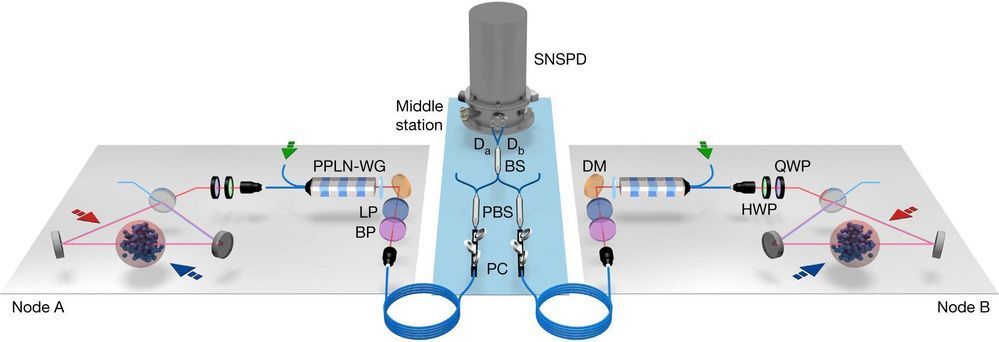A team of researchers affiliated with several institutions in China has succeeded in sending entangled quantum memories over a 50-kilometer coiled fiber cable. In their paper published in the journal Nature, the group describes several experiments they conducted involving entangling quantum memory over long distances, the challenges they overcame, and problems still to be addressed.
Over the past several years, scientists have been working toward the development of a quantum internet—one very much the same as the present-day network, but with much stronger security. One such approach is based on the development of quantum keys that would allow parties to a private conversation to know that an interloper is eavesdropping, because doing so would change the state of the keys. But in such systems, measurements of the quantum state of the keys is required, which can be impacted by environmental conditions, making the approach nearly impractical.
Another approach involves using entangled particles to form a network—but this has proven to be difficult to implement because of the sensitivity of such particles and their short lifespan. But progress is being made. In this new effort, the researchers in China succeeded in entangling quantum memory between buildings 20 kilometers apart and across 50 kilometers of coiled cable in their lab.
